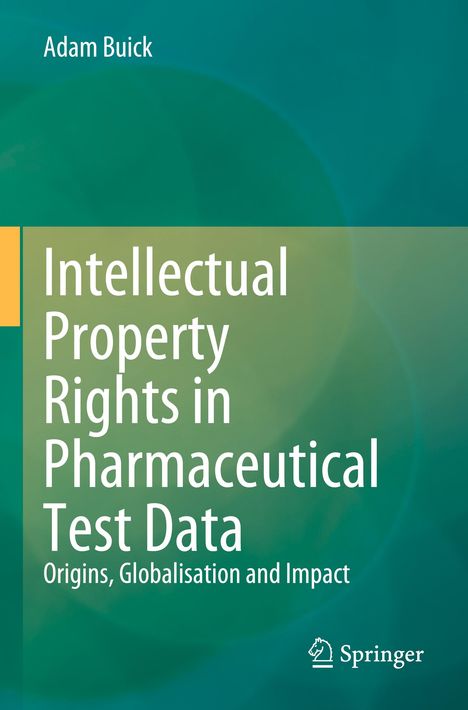Adam Buick: Intellectual Property Rights in Pharmaceutical Test Data, Kartoniert / Broschiert
Intellectual Property Rights in Pharmaceutical Test Data
Buch
- Origins, Globalisation and Impact
lieferbar innerhalb 2-3 Wochen
(soweit verfügbar beim Lieferanten)
(soweit verfügbar beim Lieferanten)
Aktueller Preis: EUR 164,28
- Verlag:
- Springer Nature Switzerland, 05/2024
- Einband:
- Kartoniert / Broschiert, Paperback
- Sprache:
- Englisch
- ISBN-13:
- 9783031294389
- Artikelnummer:
- 11869397
- Umfang:
- 244 Seiten
- Nummer der Auflage:
- 2023
- Ausgabe:
- 2023
- Gewicht:
- 376 g
- Maße:
- 235 x 155 mm
- Stärke:
- 14 mm
- Erscheinungstermin:
- 14.5.2024
- Hinweis
-
Achtung: Artikel ist nicht in deutscher Sprache!
Weitere Ausgaben von Intellectual Property Rights in Pharmaceutical Test Data |
Preis |
|---|
Klappentext
This book considers the intellectual property protection of clinical test data that has been submitted to governments, in particular through test data exclusivity rights. It focuses on how these intellectual property rights first emerged in the early 1980s, how they have globalised over the past four decades, and what impact they have had upon access to medicine.This book makes a number of significant and original contributions to the literature around the protection of submitted test data. First, the book draws upon the theory of regulatory globalisation to provide an explanation of how intellectual property rights in submitted pharmaceutical test data have become nearly ubiquitous in the legal systems of most major economies. Second, through a comprehensive analysis and synthesis of provisions on the protection of submitted test data in free trade agreements, as well as a comparison of a range of national approaches to the protection of submitted test data, it reveals the broader global regulatory pattern that has given rise to these intellectual property rights. Third, by analysing data on drug approvals in the US, it provides an empirical insight into the impact of test data exclusivity in national pharmaceutical markets. Fourth, the book covers a number of developments regarding test data exclusivity that have occurred as a result of responses to the COVID-19 pandemic, both at the national level as well as at the World Trade Organisation (WTO).
This book will appeal to academics researching the intersection of intellectual property and the life sciences, civil society activists working to promote access to medicines, and students (particularly those at the post-graduate level) studying the relationship between intellectual property and medicine.

Adam Buick
Intellectual Property Rights in Pharmaceutical Test Data
Aktueller Preis: EUR 164,28

